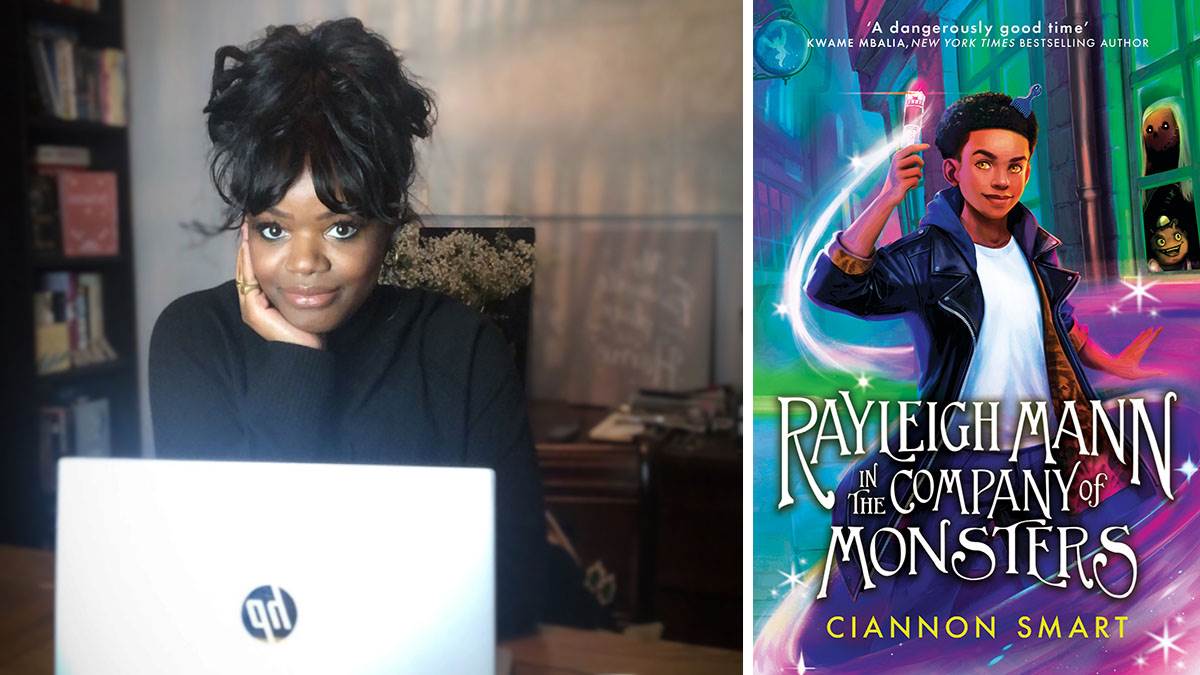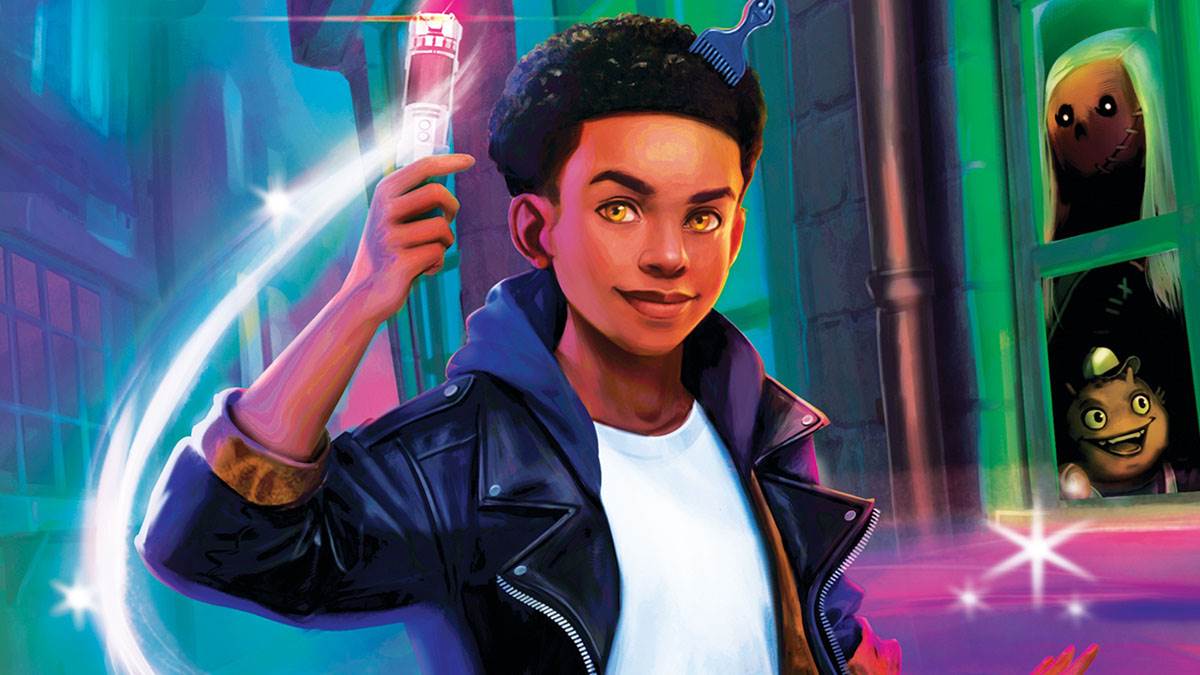How to grip readers by using humour in fantasy
Published on: 25 October 2023 Author: Ciannon Smart
Rayleigh Mann in the Company of Monsters author Ciannon Smart shares why humour works so well in fantasy novels - and how it can help to engage young readers.

When I was a kid, there was a laundry hamper in my bedroom. It was wicker, not quite circular, not quite square, and almost as tall as I was at the time. In the daytime it was innocuous. But as soon as it was time for bed, the landing light was switched off, and silence fell in my family house, it transformed into something else – a portal from which I, barricaded within the protection of my quilt, would imagine the most awful monsters could slink through.
The fact that I now write about monsters of all kinds, across several age groups, is either a successful way of overcoming my childhood trauma, or something diametrically opposed, to be studied by professionals. Either way, the good news, perhaps, is that I stopped being afraid of things that went bump in the night, and found them fascinating instead. My writing style can be summarised similarly: finding a new way to view the unexpected; and for me, that often means with humour.
Laughter is, I think, something all kids can relate to – in fact, some of the funniest moments I've had were when I was a teacher, and my students would regale me with stories. One group in particular were brilliantly bright. They'd challenged themselves with pinning photos on their teachers' noticeboards, and seeing how long it would take them to spot the outliers. Those kids used humour as an act of rebellion.
Some kids rely on humour to get them through difficulties at home, or to distract from day-to-day struggles in life.
Humour is as malleable as a piece of clay, fit to be shaped into whatever it needs to be, which is why I think it makes stories so accessible. There's a joke for every kind of reader, from the most enthusiastic to the most reluctant.
With the rise of audiobooks, and talented actors embodying voices, those jokes and moments of levity have become something three-dimensional. Like joking with friends.
How humour can engage reluctant readers

Pic: Tom Percival
Reading can often be considered a chore. It's easy to fail to associate it with something that can be fun. Never one for maths, I didn't put two and two together – humour and storytelling – until I read the first Skulduggery Pleasant book, six years after I decided I wanted to be a writer.
Discovering Derek Landy's original nine books could have come sooner – and would have, in fact, if I'd got over my own preconceived notions about children's fiction and its readers. My little brother, five years younger than me, credited Landy as his favourite author. Older, and believing myself wiser, I didn't think our tastes could align. Years later, I'd meet Derek Landy in a signing queue at a book event, and I'd tell him this story, ending with: "And I've never been happier to be proven wrong."
Fantasy was often dark, always grand, but never did I consider that it could be all those things and funny. My younger brother refused to commit to any stories because he didn't think the practice of reading was enjoyable. He associated it with school, which can often overlook the different ways kids absorb information. But a few funny character names later, and the laugh-out-loud moments Landy is famous for, and he was committed to the entire series.
Humour in stories helps show kids that books can be fun, and they can imitate life: their own adventures they undertake when their parents aren't around, or their teachers' backs are turned.
The Skulduggery Pleasant series helped me discover more funny stories, such as the Lockwood & Co books. More recently, I've been reading Bob vs the Selfie Zombies, a laugh-out-loud adventure with a penchant for fart jokes. After these stories, I couldn't believe I'd overlooked the thing that my friends and family would probably say first about me, if pressured to offer a compliment: my sense of humour.
Bringing humour to Rayleigh Mann in the Company of Monsters

Pic: Raymond Sebastien
Rayleigh's conception might be the biggest laugh of all, when I reflect on it. Two words started his story: Scare Duty. I imagined a world in which monsters frightened humans for a greater purpose, and one boy who would embark on an adventure of self-discovery, magic, and plenty of trouble, as he learned that the very antics that result in him being told off in his world, are celebrated and encouraged in the secret world of monsters right under his nose.
Sneaking out? Totally fine, as long as a note is left behind. Breaking and entering? Probably not advisable in a house known for eating people, but not entirely discouraged.
As a former naughty kid, who grew up to become a teacher that welcomed the naughty kids into my classroom, celebrating trouble in this story has been my greatest pleasure. Second only to knowing that those reluctant readers, those kids who might not feel clever in the traditional sense, will find themselves, their antics, in the pages of my book.
I truly believe that there is a story for everyone. More than that, I think children's fiction is where it's at. Adventure, magic, trickery, and humour? They really do know best.
Hopefully, you'll never consider a washing hamper, or the space under your bed, the same way again.
Rayleigh Mann in the Company of Monsters by Ciannon Smart is out now.
Topics: Fantasy, Funny, Reading for pleasure, Features





